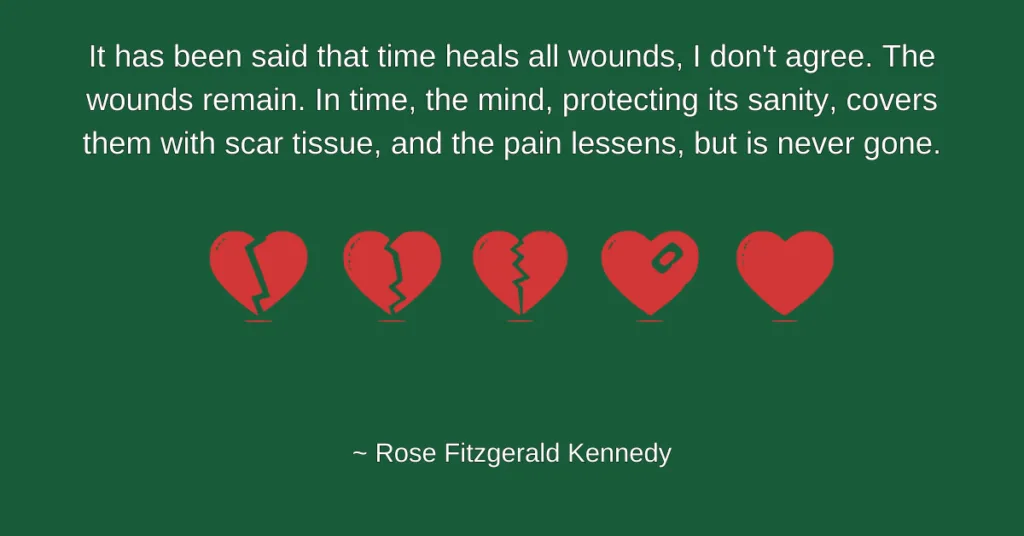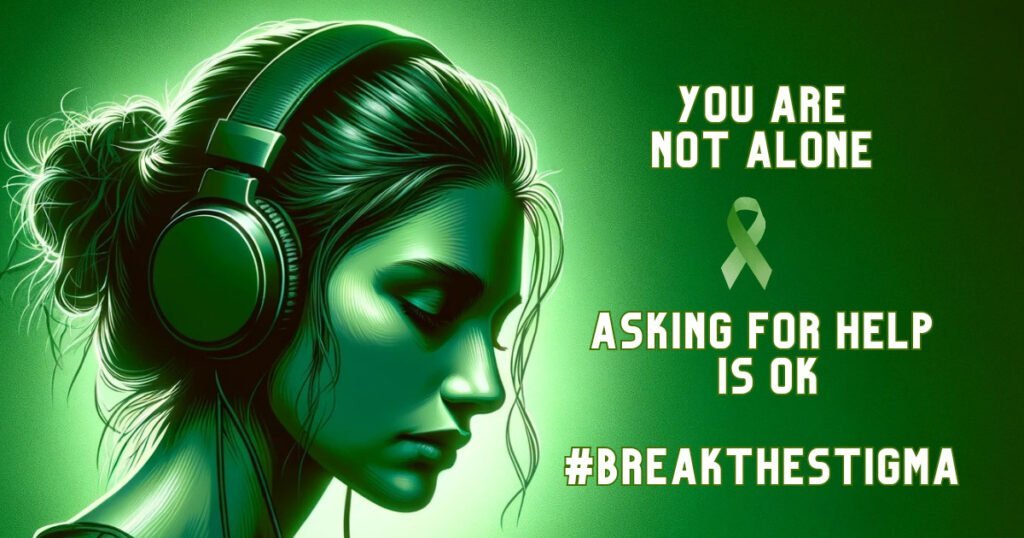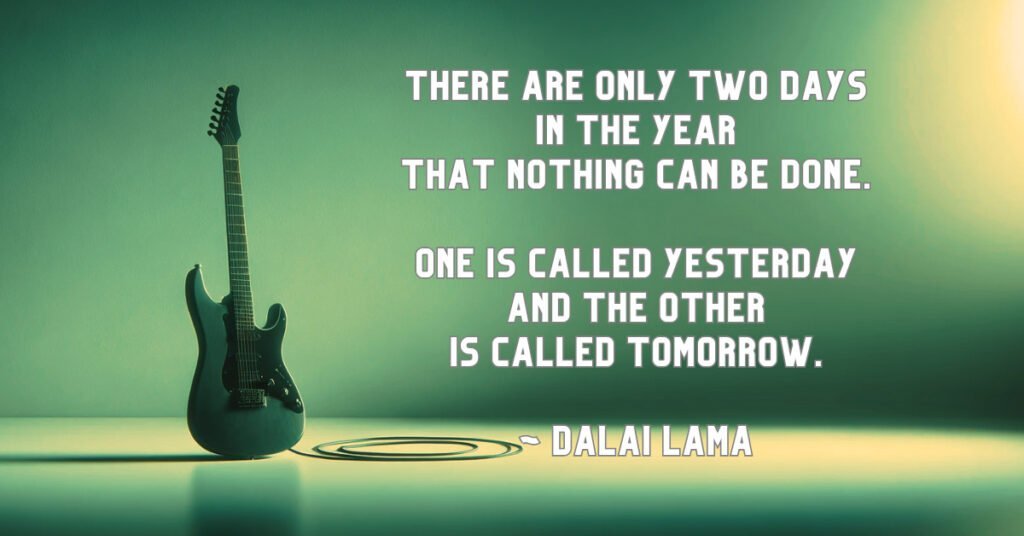
A Look Beyond Time’s Band-Aid
“It has been said that time heals all wounds, I don’t agree. The wounds remain. In time, the mind, protecting its sanity, covers them with scar tissue, and the pain lessens, but is never gone.” — Rose Fitzgerald Kennedy. Much like a rock song that stays with you long after it’s played, this quote deeply resonates. Let’s explore why time might not be the healer it’s often thought to be, and what actually helps us heal when life hits hard.
Time is like the band that keeps playing, hoping the crowd will forget a bad performance. We expect time to wash away our pain, but often, we find the echoes of hurt remain, softened but persistent. Here, we’ll dive into what emotional wounds are and see why they stick around, making us feel things long after the event is over.
Understanding the Cuts That Sting
Emotional wounds are deep emotional hurts that come from tough times, like losing someone we care about, being betrayed, or experiencing a big failure. Think of these as the sharp notes in a song that you can’t seem to get out of your head. These wounds can change how we view the world and interact with others, sometimes making us feel like we’re stuck in a sad song.
To really understand these wounds, we need to see them as more than just bad memories. They shape us, changing our tune as we move through life. It’s crucial to know that these wounds need attention and care, much like a guitar needs tuning, to ensure they don’t throw our lives out of rhythm.
Does Time Really Heal All?
We often hear that “time heals all wounds,” like it’s a catchy chorus that everyone knows. But just as a song fades out, the feelings of pain might become less intense, but they’re not gone. Time alone isn’t enough to heal us; it’s what we do with that time that helps us heal. Taking steps to understand and deal with our feelings, like talking to a friend or writing down our thoughts, can be much more healing than just waiting for time to pass.
Just like a band uses a soundcheck to prepare for a great performance, we need to actively work on our emotional health. It’s about more than just waiting; it’s about doing things that help us feel better and move forward, like finding hobbies that make us happy or spending time with people who make us feel good.
Building Your Emotional Playlist
Rose Kennedy talked about the mind forming “scar tissue” over our emotional wounds to protect us. Imagine this like a band playing louder to cover a mistake. We all develop ways to deal with pain—some of us throw ourselves into work, others might create art or seek peace in nature. These are ways we try to drown out the pain or distract ourselves, like turning up the music to ignore a noisy room.
However, these are often temporary fixes. They help for a while but don’t solve the problem. True healing might need us to change how we deal with our emotions, much like changing the setlist after realizing the songs aren’t working with the audience. It’s about finding healthier ways to cope, so our minds don’t just cover up the pain, but actually start to heal.
Finding Lasting Peace and Harmony
Real healing is like getting ready for an encore; it’s about more than just the passing of time—it requires action and effort. This might mean talking to a counselor who can help us understand our feelings, joining groups where we share and listen to others’ struggles, or being there to support friends facing their own battles. Like fans at a rock concert finding connection in the music, finding a community of support can amplify our healing.
We should aim to be the supportive band member others can rely on, pushing everyone to seek help and not just endure the music of their lives but to change it for the better.
A Positive Note on Moving Forward
We’ve discovered that time alone doesn’t heal all wounds—it merely turns down the volume. Like the quiet after a powerful rock concert, the silence can be a relief, but it doesn’t erase the echoes of the songs played. To truly move past our emotional challenges, we need to be proactive. This means understanding our emotional wounds, actively engaging in coping strategies, and building strong support networks. Each step, each action we take, is like a note in the harmonious melody of our healing process.
Let’s keep the music of our lives playing with optimism. By treating our emotional wounds with the care they require, and not just waiting for time to dull the pain, we can compose a life that feels genuinely uplifting and fulfilling. Remember, every positive step forward, no matter how small, contributes to the greater symphony of our well-being. Let’s embrace the journey of healing with the same enthusiasm as an encore in a rock show—exciting, hopeful, and always leading to a better ending.


